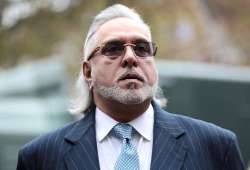Special PMLA court declares Vijay Mallya 'fugitive economic offender', clears path for confiscation of his properties
Vijay Mallya had moved to London in 2016, leaving behind a bad debt of over Rs 9,000 crore with at least 17 Indian banks.

A special PMLA (Prevention of Money Laundering Act) court today officially declared business tycoon Vijay Mallya a fugitive economic offender. The declaration clears path for the government to confiscate his properties for auction and recovery of the defaulted amount.
Vijay Mallya had moved to London in 2016, leaving behind a bad debt of over Rs 9,000 crore with at least 17 Indian banks.
Mallya, his now defunct venture Kingfisher Airlines Limited and others availed loans from various banks and the outstanding amount, including interest, against him is Rs 9,990.07 crore at present. The businessman is currently contesting his extradition case in London filed by the Indian government on behalf of the CBI and ED.
Mallya, in the past, has said that he has become the "poster boy? of bank default and a lightning rod for public anger.
"I have been accused by politicians and the media alike of having stolen and run away with Rs 9,000 crores that was loaned to Kingfisher Airlines (KFA). Some of the lending banks have also labelled me a wilful defaulter? Mallya had said.
Both the ED and the Central Bureau of Investigation (CBI) have filed cases for alleged loan default against him
The Modi government brought the new law as there have been instances of economic offenders fleeing the jurisdiction of Indian courts, anticipating the commencement, or during the pendency, of criminal proceedings.
The law has provisions for special courts under the Prevention of Money Laundering Act, 2002 to declare a person as a fugitive economic offender and order immediate confiscation of assets.
A fugitive economic offender is a person against whom an arrest warrant has been issued in respect of a scheduled offence and who has left India so as to avoid criminal prosecution, or being abroad, refuses to return to India to face criminal prosecution, the government had said
The cases of frauds, cheque dishonour or loan default of over Rs 100 crore would come under the ambit of the ordinance.